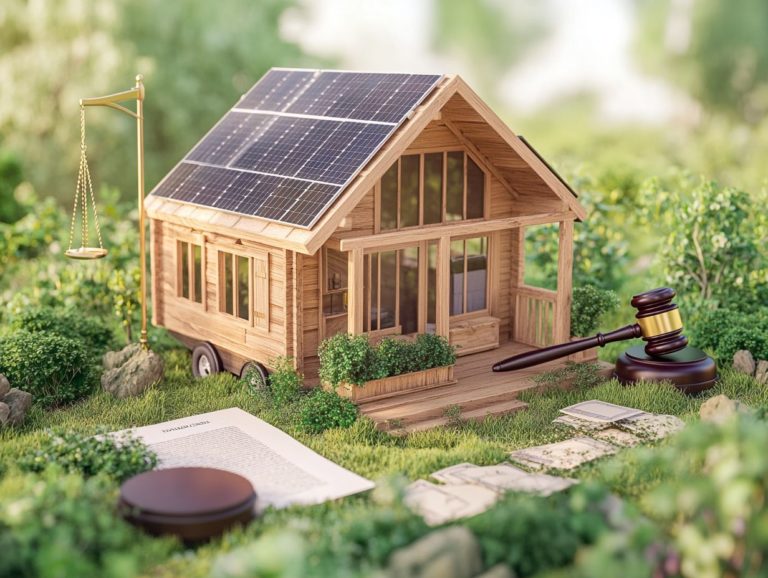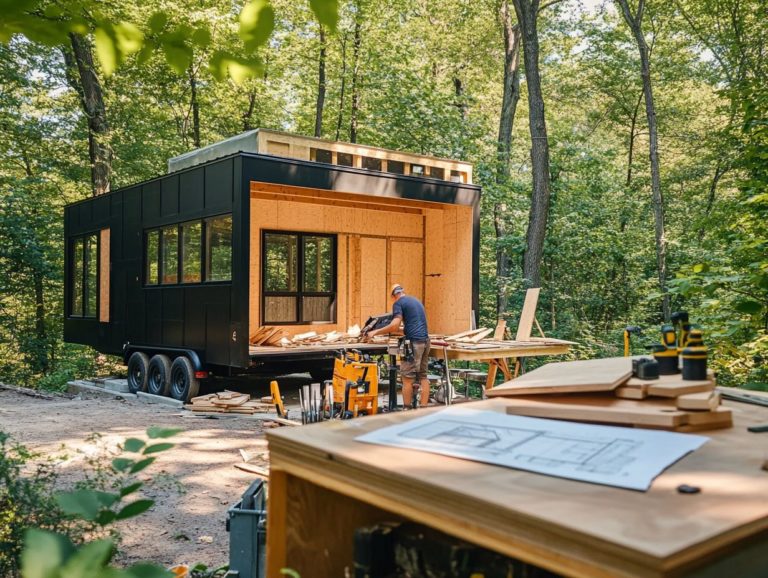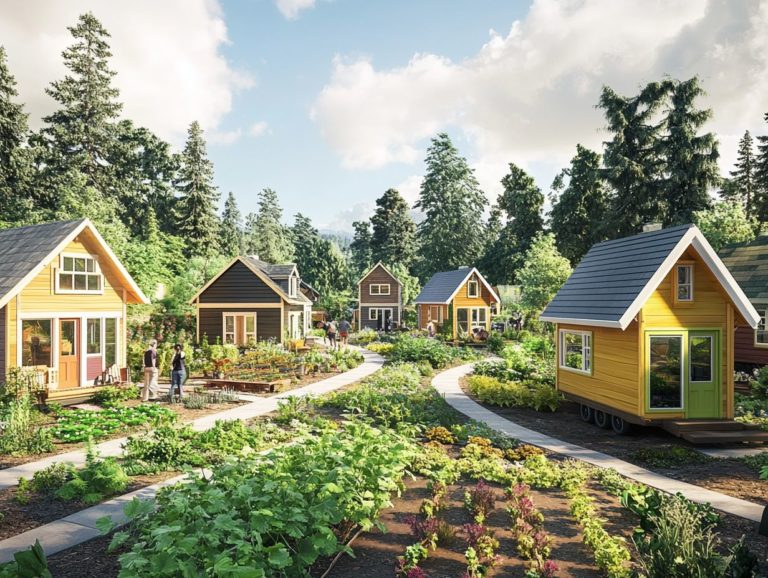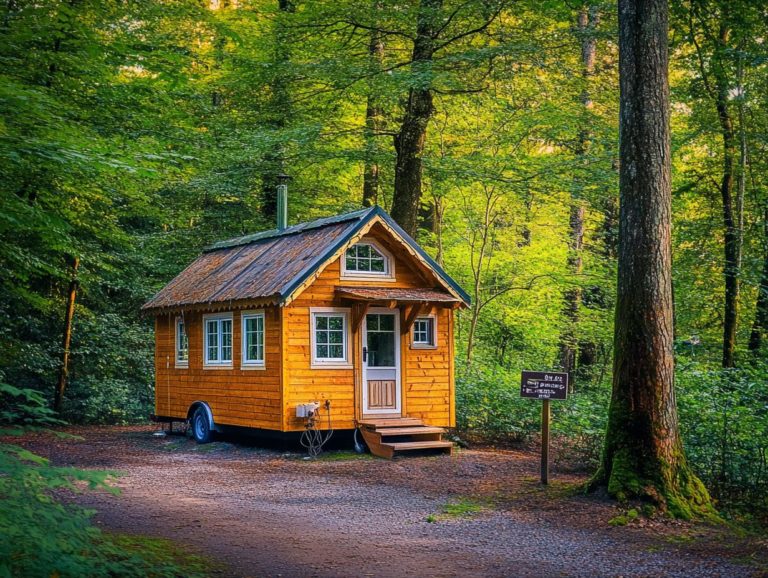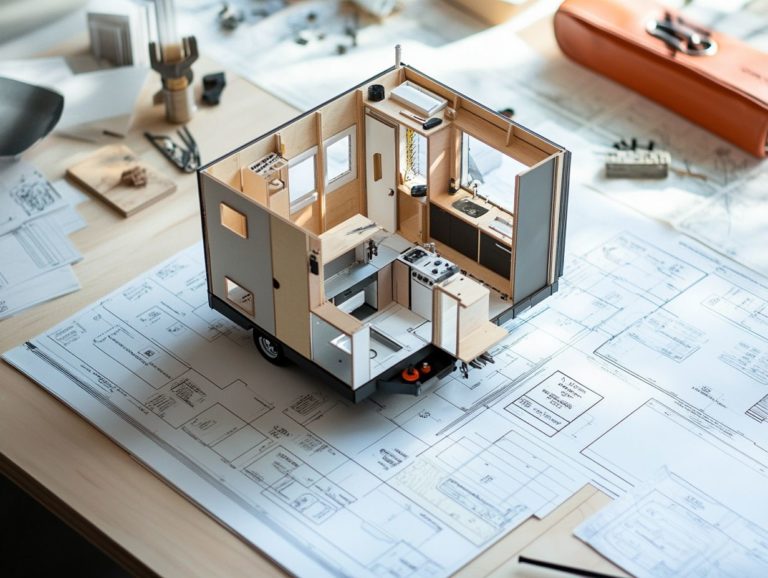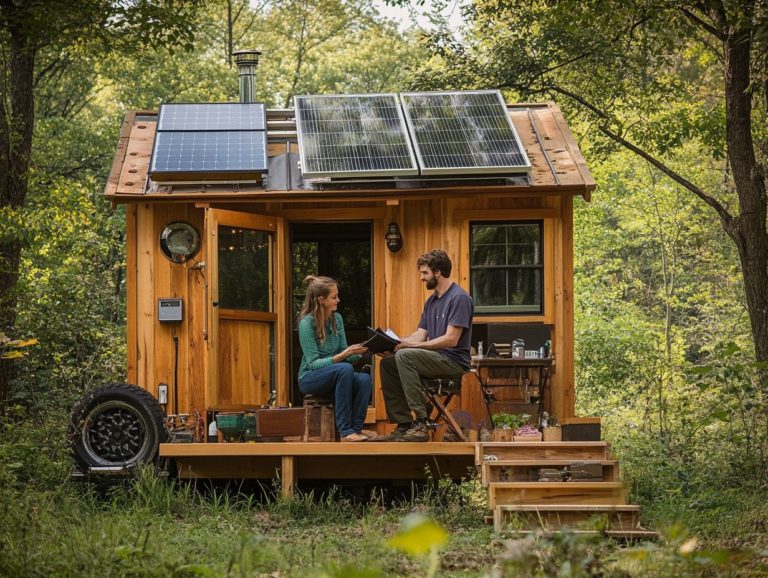Tiny House Legal Challenges: How to Overcome Them
Tiny homes are inspiring a movement toward affordable living and minimalist lifestyles that many are eager to join! They present an alluring blend of minimalist living and affordable housing solutions.
As a potential tiny house owner, you may face a complex landscape of legal challenges that could complicate your dreams. From deciphering zoning laws and building codes to tackling land ownership issues, the journey to tiny home ownership is often fraught with challenges.
This guide aims to illuminate these legal intricacies, providing you with financing choices and resources to help you overcome these obstacles. This way, you can fully embrace the simplicity and freedom of tiny home living.
Contents [hide]
- Key Takeaways:
- Understanding Tiny House Legal Challenges
- Zoning Laws and Building Codes
- Land Use and Ownership Issues
- Overcoming Legal Challenges
- Resources for Tiny House Owners
- Frequently Asked Questions
- What are some common legal challenges faced by tiny house owners?
- How can I overcome zoning restrictions for my tiny house?
- Are there any specific building codes for tiny houses?
- What are some legal considerations when parking a tiny house on someone else’s land?
- How can I ensure my tiny house is legally considered a permanent structure?
- Can I legally live in a tiny house full-time?
Key Takeaways:
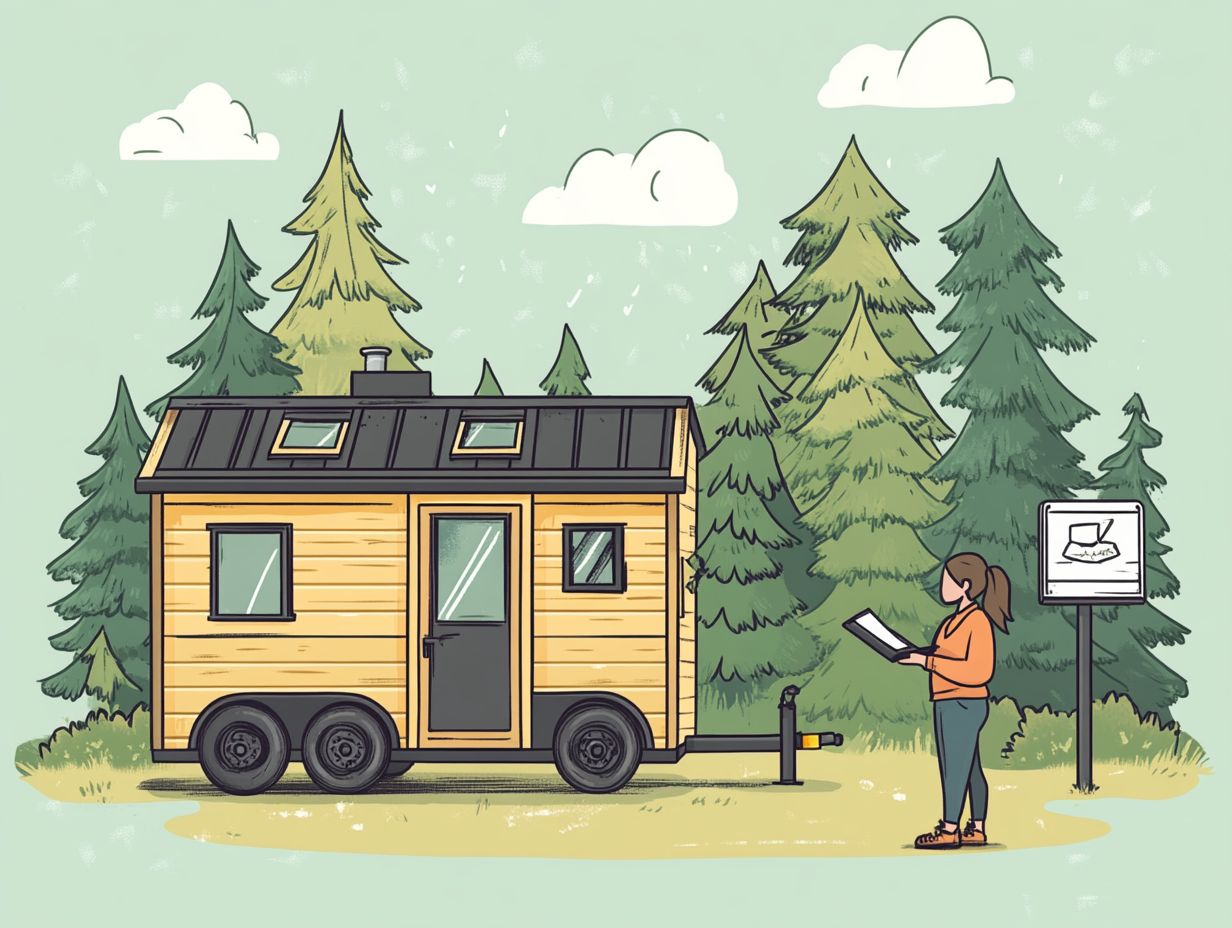
- Familiarize yourself with zoning laws and building codes that apply to tiny houses, and seek legal advice if needed.
- Research potential land use and ownership issues before deciding to build or purchase a tiny house.
- Connect with organizations and resources that specialize in legal support for tiny house owners to navigate any challenges that may arise.
Understanding Tiny House Legal Challenges
Understanding the legal challenges surrounding tiny homes is essential for you as a potential homeowner and an advocate of the growing tiny house movement.
These challenges cover a range of issues, including zoning restrictions that can limit where you can place your tiny house, as well as varying building codes dictated by different states and municipalities. To navigate these complexities, it’s helpful to refer to tiny house legal resources you should know.
Administrative hurdles can complicate securing necessary permits, ultimately affecting the overall feasibility of your tiny home dreams. Navigating this legal landscape demands not only a keen awareness of local ordinances but also a grasp of the broader implications for sustainable living and achieving financial freedom. For a comprehensive understanding, refer to the tiny house regulations: a state-by-state guide.
Defining Tiny Houses and Their Legal Status
Tiny houses are essentially residential structures that usually measure less than 400 square feet, often crafted from sustainable materials and embodying the principles of minimalism and eco-conscious living.
These compact dwellings attract a growing number of individuals looking for affordable housing solutions and a simpler way of life. However, the classification of tiny homes can vary widely depending on local regulations, leading to a rather intricate legal framework.
For example, tiny homes can serve as permanent residences, whereas accessory dwelling units (ADUs) function as secondary homes on the same property, designed to provide extra living space.
Recreational vehicles (RVs), in contrast, are inherently transient and often lack the permanence associated with other forms of homeownership. These different definitions not only dictate where you can legally reside but also affect zoning laws and the level of community support for tiny living.
This creates a landscape filled with both opportunities and challenges for those who choose to embrace this alternative lifestyle.
Zoning Laws and Building Codes
Zoning laws and building codes are crucial in defining where you can legally place your tiny house and the specific construction requirements that must be met. These regulations can vary significantly from one jurisdiction to another, so it s essential to familiarize yourself with the local rules before making any decisions.
Ready to start your tiny house journey? Let’s explore these legal aspects together!
Navigating Zoning Laws for Tiny Houses
Navigating zoning laws for tiny houses can be quite a maze, given the patchwork of regulations that vary from region to region. Local ordinances may either support or hinder your tiny home goals.
Take Maine, for example. Some towns have embraced tiny homes by adjusting zoning regulations to allow them as additional small homes on your property. This gives homeowners the freedom to utilize small structures on their property.
On the flip side, Georgia presents a more stringent landscape. Certain counties outright ban tiny homes due to antiquated zoning codes.
If you face these hurdles, consider uniting with fellow homeowners. Banding together as a community allows you to advocate for change through petitions, attending town hall meetings, and rallying local support.
Engaging with neighborhood associations or forming advocacy groups can increase your voice. This collective effort could ultimately pave the way for more inclusive housing options tailored to your needs.
Complying with Building Codes
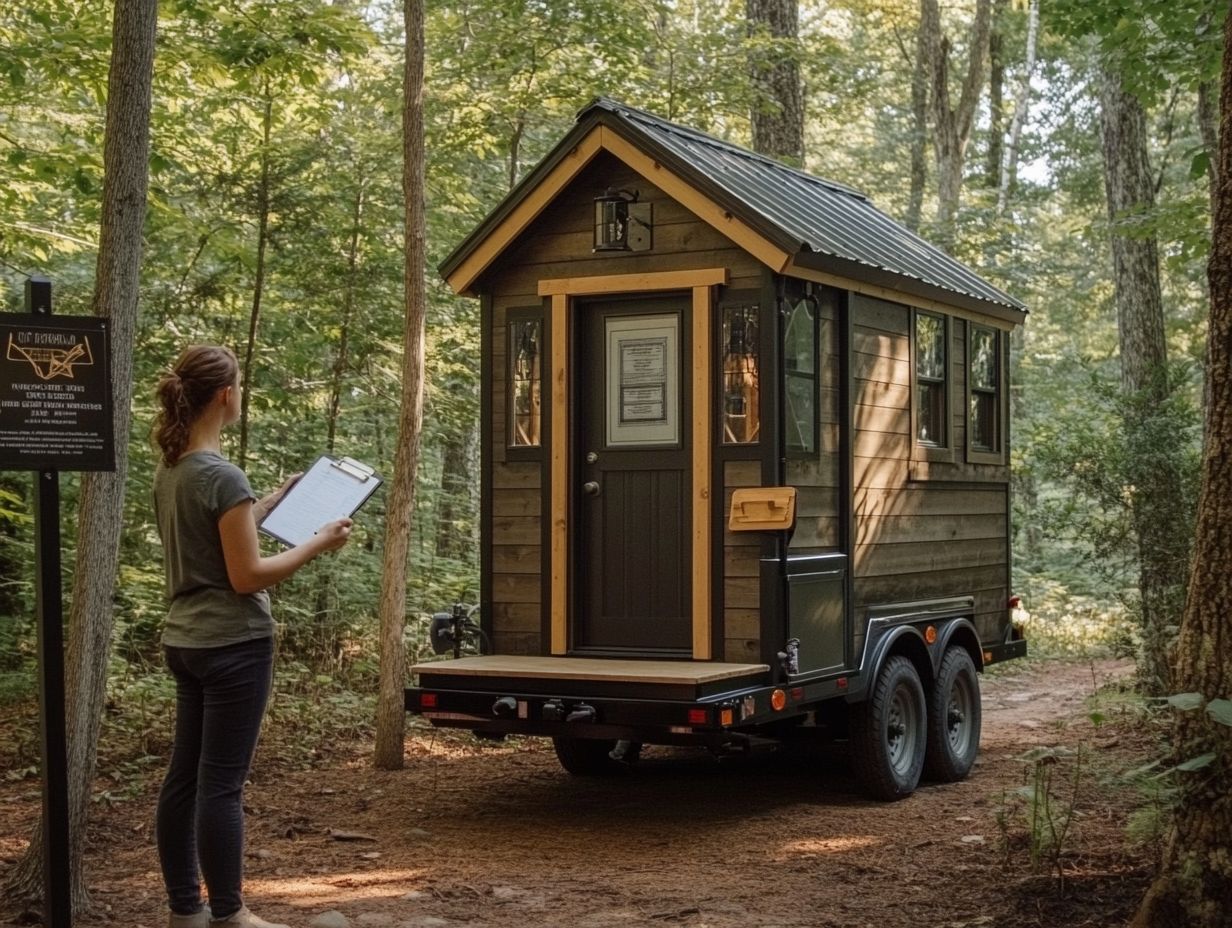
Complying with building codes is crucial for tiny home construction. It ensures these charming structures meet safety standards and cater to the specific needs of tiny living.
By understanding and following local regulations, you can skillfully navigate the complexities of zoning laws and construction guidelines. Following the rules keeps your home safe and builds good relationships with local officials.
Informed discussions about necessary permits and inspections can streamline the approval process. This paves the way for a smoother journey in achieving your compact living dreams.
Land Use and Ownership Issues
Land use and ownership issues are essential factors for tiny home owners to consider. Securing the right plot of land can pose unique challenges, shaped by existing housing policies and local regulations.
Understanding these intricacies will enable you to navigate the landscape effectively.
Finding Land and Dealing with Ownership
Finding the right land for your tiny home can feel like navigating a maze of housing challenges. Many factors influence ownership, including local regulations and community support.
To traverse this intricate landscape, leverage a range of online resources that aggregate land listings. Real estate websites and specialized platforms dedicated to tiny living can be particularly helpful in your search.
Don t overlook local listings on community bulletin boards or regional Facebook groups. These can often reveal hidden gems that you might not find elsewhere.
Exploring tiny home communities or housing cooperatives could be a smart strategy. These setups provide pre-approved land options and create a nurturing environment where residents can share resources and sustainable living advice.
Such collaborations can greatly simplify your journey towards tiny home ownership.
Leasing and Renting Land for Tiny Houses
Leasing and renting land for tiny houses often emerges as a practical solution. This is especially true if you can’t buy land, particularly in urban areas where minimum square footage laws can limit traditional housing options.
Considering this route opens up a variety of alternatives, such as RV parks and private properties. RV parks frequently offer short-term rental arrangements complete with amenities like utilities and community spaces.
This makes them an appealing choice for those who appreciate a sense of community. However, there may be restrictions on permanence and space.
On the flip side, leasing private property might grant you more flexibility regarding your living arrangements. This path could involve complex negotiations and careful navigation of local zoning and building regulations.
It s crucial to research and grasp the nuances of these agreements. Ensure you negotiate terms that meet your personal needs while aligning with local ordinances to sidestep any homeowner challenges in the future.
Overcoming Legal Challenges
Overcoming legal challenges in the tiny house movement demands a thorough understanding of the laws, combined with proactive strategies that empower tiny homeowners to effectively advocate for change.
Understanding the nuances of zoning laws and building codes is essential for navigating this complex terrain. Zoning laws are rules about how land can be used, while building codes set standards for building safety and construction. By equipping yourself with knowledge and resources, such as understanding tiny house land use laws, you can become a powerful voice in the movement, pushing for the reforms that will support and legitimize tiny living.
Strategies for Addressing Legal Issues
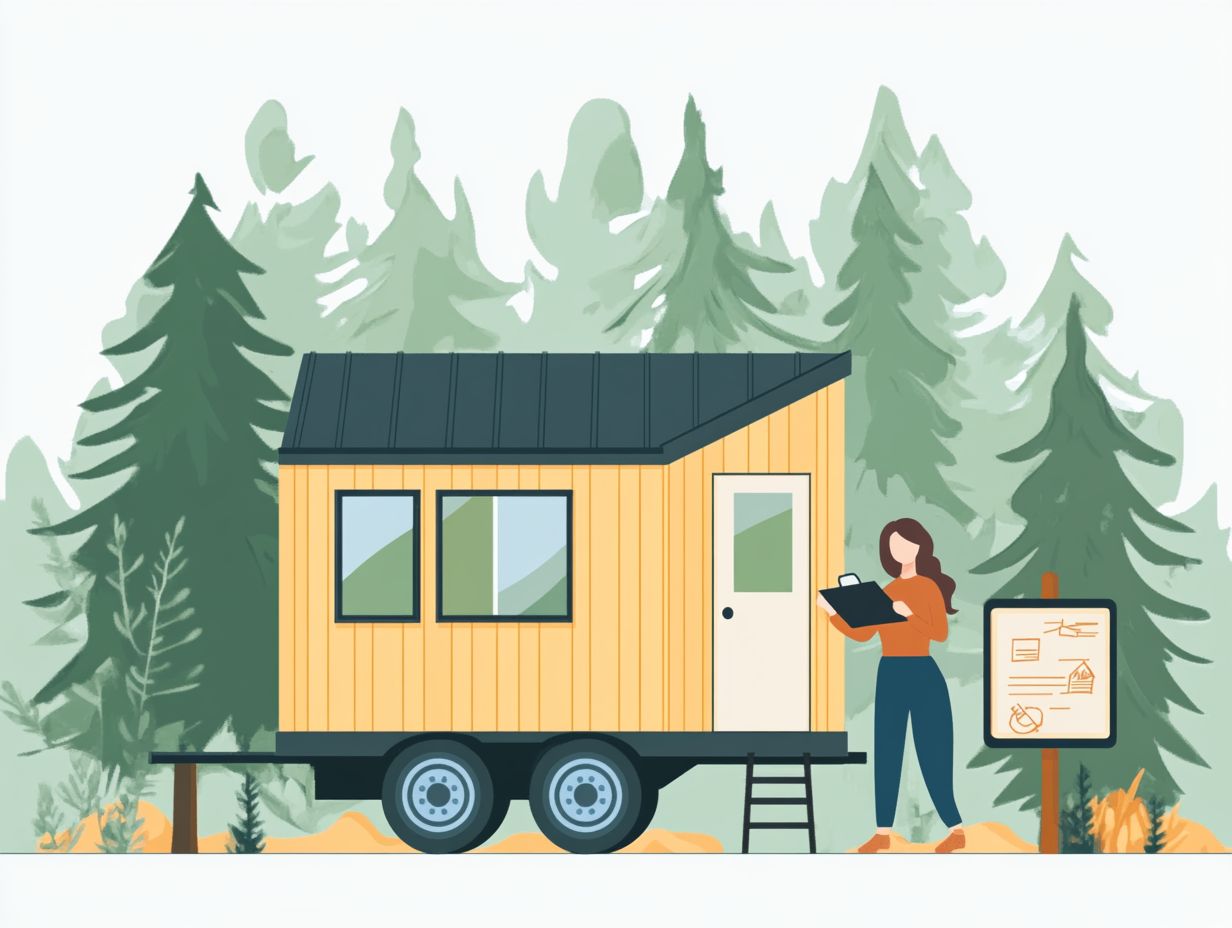
Developing effective strategies to tackle legal issues surrounding tiny homes is crucial for ensuring that the tiny house movement gains momentum and recognition in the broader housing discussion.
By examining successful case studies from various regions, you can see how collaboration with advocacy organizations plays a vital role in shaping public discourse. These partnerships amplify voices and cultivate a sense of community around the tiny house movement.
Grassroots movements have sparked public awareness campaigns, showcasing the benefits of tiny living, such as affordability and sustainability. This newfound visibility has prompted local governments to reevaluate zoning laws and building codes, ultimately paving the way for more lenient regulations that assist tiny homeowners in navigating the often-complex legal landscape, including the importance of zoning.
Resources for Tiny House Owners
You ll find a wealth of resources at your disposal as a tiny house owner, from legal support to financing options, all designed to help you navigate the intricacies of tiny home living and its unique challenges.
Organizations and Resources for Legal Support
Organizations like the American Tiny House Association are invaluable for providing the legal support and resources you need. They ll help you navigate the tangled web of zoning laws, building codes, and community development issues, ensuring compliance with building standards.
Alongside the American Tiny House Association, groups such as the Tiny Home Industry Association and local legal aid societies offer tailored assistance that addresses the unique challenges faced by tiny home communities. They can clarify specific local regulations, advocate for more inclusive tiny house zoning laws, and even provide legal representation if disputes arise.
Don t miss out on the chance to attend community forums and workshops! These events are exciting opportunities to learn from experts and connect with fellow tiny home lovers.
Following their social media channels or subscribing to their newsletters will keep you updated on essential resources, legislative changes, and advocacy opportunities, amplifying your voice in the tiny home movement.
Frequently Asked Questions
What are some common legal challenges faced by tiny house owners?
Some common legal challenges faced by tiny house owners include zoning restrictions, building codes, and land use regulations, which can often lead to administrative hurdles when seeking a building permit.
How can I overcome zoning restrictions for my tiny house?
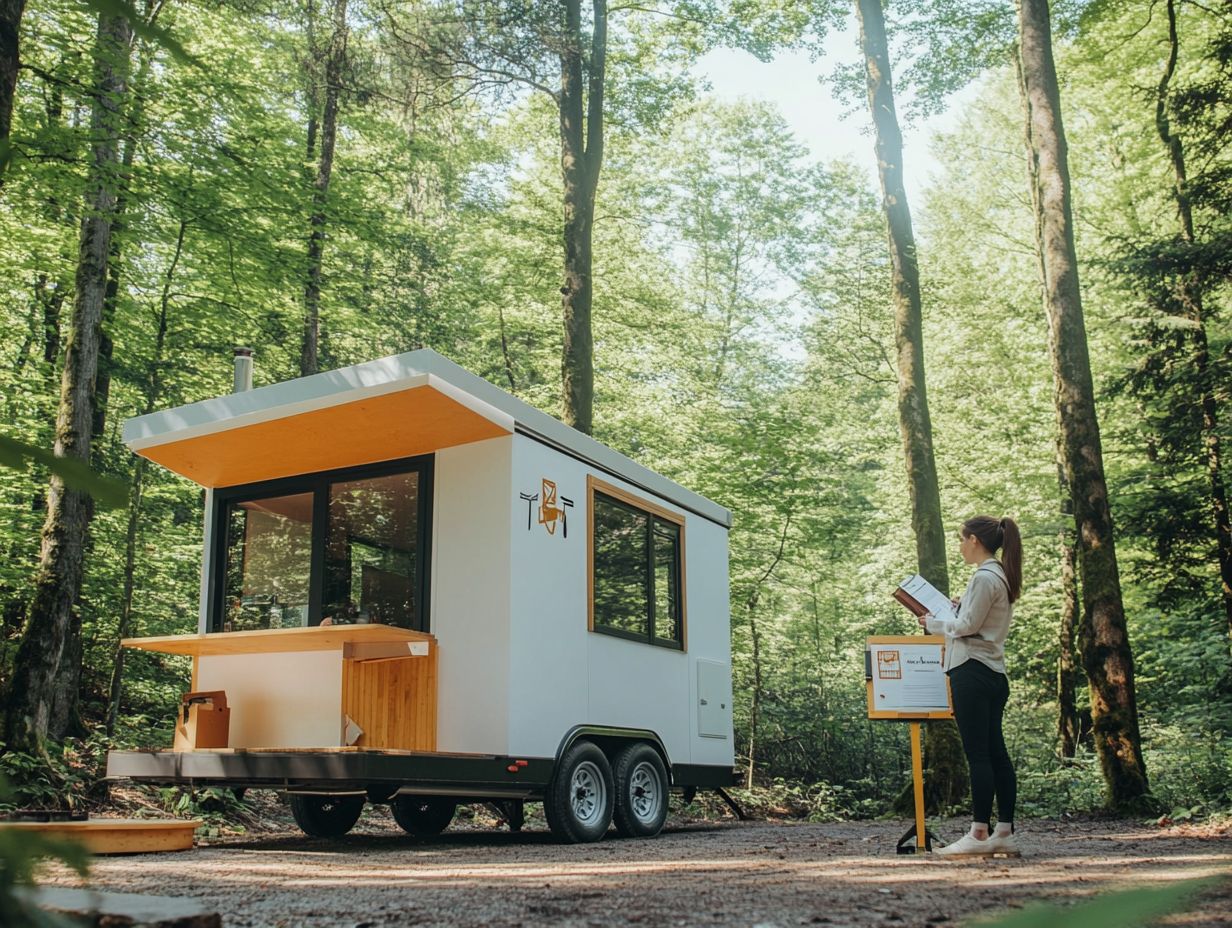
To overcome zoning restrictions, you can apply for a special permission, seek a change in zoning laws, or find a community with more lenient regulations for tiny houses.
Are there any specific building codes for tiny houses?
There are currently no specific building codes for tiny houses. However, they must comply with certain standards such as minimum square footage and safety standards.
What are some legal considerations when parking a tiny house on someone else’s land?
When parking a tiny house on someone else’s land, some legal considerations include obtaining written permission and determining if the land is zoned for residential use. It’s also important to create a formal agreement for long-term parking.
How can I ensure my tiny house is legally considered a permanent structure?
Get your tiny house certified as an RV or obtain a certificate of occupancy from your local building department. This ensures compliance with the International Residential Code guidelines.
Can I legally live in a tiny house full-time?
Curious if you can live in your tiny house year-round? It all comes down to local zoning laws and building codes. Research and comply with these regulations to avoid potential legal challenges.

